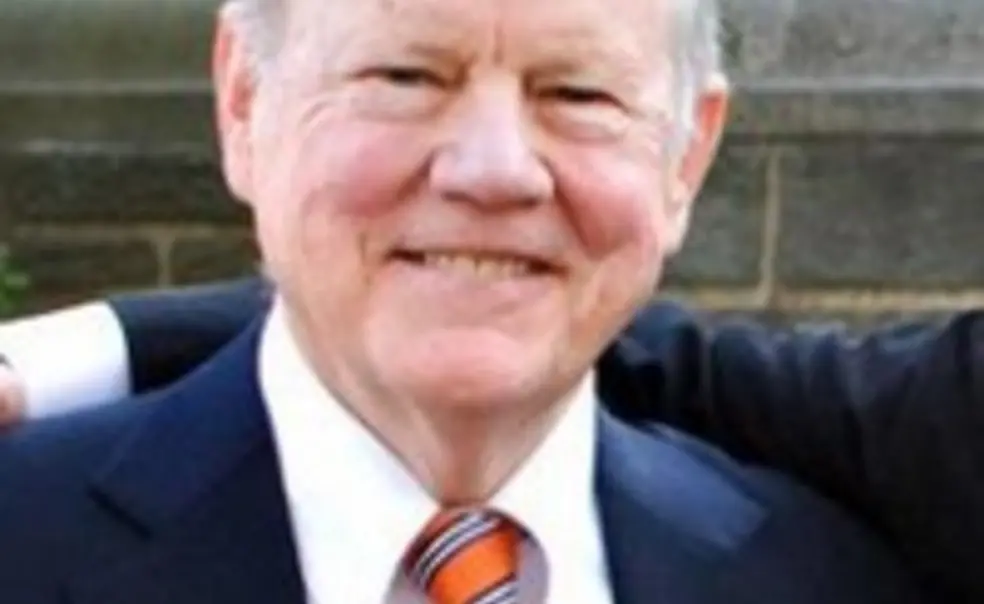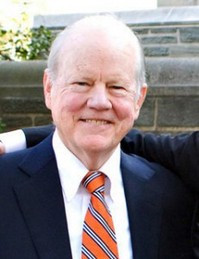This fall, 54 Princeton students are spending time in prisons – not as inmates, but as tutors and teachers. They’re working with the Petey Greene Prisoner Assistance Program, founded by Jim Farrin ’58 and Charles Puttkammer ’58 in 2008, which organizes Princeton students to help inmates learn basic academic skills.
Petey Greene Prisoner Assistance Program co-founder Jim Farrin '58. (Courtesy Jim Farrin '58)
In both the Albert C. Wager Youth Correctional Facility (ACW) and Garden State Prison, undergraduates tutor inmates in reading, writing, and math. Some also have taught courses in health, art history, economics, and poetry. ACW has 1,200 male prisoners, ages 18 to 30, in low- to maximum-security cells; the Garden State facility has fewer hardcore prisoners. Participation in the program helps inmates get into credit-bearing programs in the future.
Sociology major Andrea Francis ’11 describes the program as a great way for Princeton students to interact with people they wouldn’t engage with otherwise. “The prisoners really appreciate us being there,” she said. “The most rewarding thing is giving the prisoners ownership of what they’re doing, and seeing that my explaining something really makes the difference in their understanding of their work.”
When Farrin first proposed the idea to the Pace Center for Civic Engagement in late 2007, he was cautioned against being too optimistic about student participation. Princeton students are busy, he was told, so don’t be disappointed if no one responds. But mere hours after the program was first advertised in the Pace Center newsletter, Farrin’s phone rang with encouraging news: Several students had responded almost immediately. And when he held his first meeting with the students who had signed up, he was pleasantly surprised to see that the room he had booked at the Frist Campus Center was almost full.
“I went around asking why [the students] wanted to do this,” he said. “The most common response was that they wanted to give back. They understood that [the prison system] is a problem.”
One of the biggest issues facing prisons in the United States, Farrin said, is that current teachers are not up to providing the education that inmates need. “They are short in number, and it is hard to have one teacher assigned to a class where students have so many different backgrounds,” he explained, adding that education can be the inmates’ ticket to successful reintegration into society.
Volunteer enrolment is up nearly 60 percent this fall, compared to last spring, and the program has formed a partnership with The College of New Jersey to bring more student tutors to work in the prisons.
The program provides undergraduates with what Farrin calls “a tremendous sense of mission.” “You don’t have to go halfway around the world to give back,” he said. “ACW is only 23 miles away.”













No responses yet